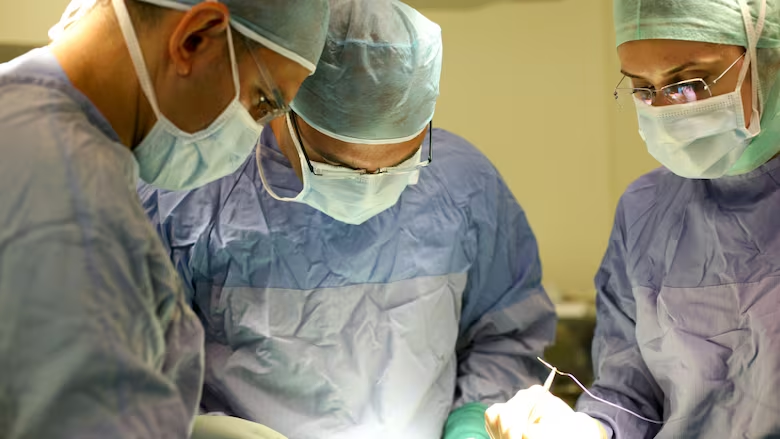'Significant effort' needed in B.C. to resume elective surgeries and reopen health-care services
Adrian Dix said province needs to be '100 per cent all in' on flattening the COVID-19 curve

Health Minister Adrian Dix says it will take a lot of planning and work before non-urgent elective surgeries can resume in B.C., and it can only happen if the province continues to flatten the infection curve.
During Tuesday's daily COVID-19 briefing, Dix said planning how to resume scheduled surgeries actually began before they were put on hold last month.
"They're all important and they're all significant," he said of the surgeries. "It will require a very significant effort that will involve everyone involved in acute care across the province."
The surgeries were cancelled to prepare hospitals for a potential flood of COVID-19 patients seeking urgent care. The last two weeks have seen the hospitalization rate gradually fall — as of Tuesday, there were 109 COVID-19 patients in hospital.
At the same time, the occupancy rate of the province's acute care wards was around 61 percent, and critical care units were about 45.8 per cent full.
Dix said that in order for elective surgeries to resume, the province will need to consult with patients, assess current wait-lists and ensure an adequate supply of personal protective equipment.
"A lot of work will go into it, but it's all dependent on us continuing to be 100 per cent all in and flattening this curve," he said.
"The most important thing is that if we're sick, stay home."
'We need to be really careful'
Tuesday's briefing also touched on the subject of restarting other parts of the health-care system.
Provincial health officer Dr. Bonnie Henry said it's important, for example, to renew access to hands-on physiotherapy.
"We know it's really important for the people who are recovering from those surgeries that are going to start again," she said.
"We know that there are dental procedures that need to happen."
Like Dix, she stressed that making that a reality will require a lot of planning. That includes making sure patients aren't crowded together in a waiting room and putting in protections for reception staff.
It will also require that people who work in health-care clinics are careful about maintaining physical distances outside of work, so they don't spread disease between patients, co-workers and family.
And it means a commitment from health-care workers to stay home when they're feeling sick.
"A couple outbreaks we've had recently have expanded because people have not paid attention to symptoms, even mild illness," Henry said.
"That presentee-ism that we have — I know it's really strong in health care because we feel like we need to be there because people are depending on it. We need to be really careful about that for the next year."